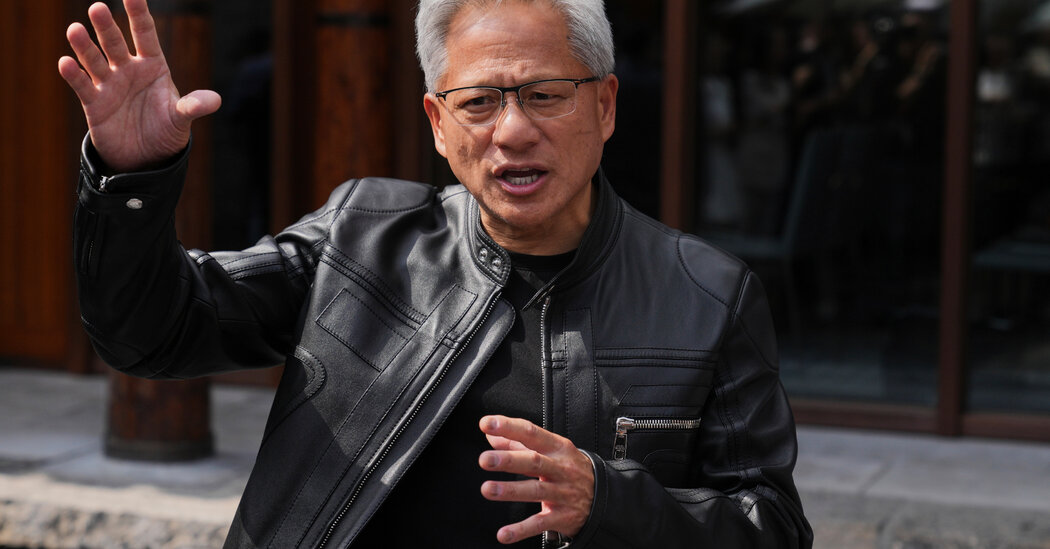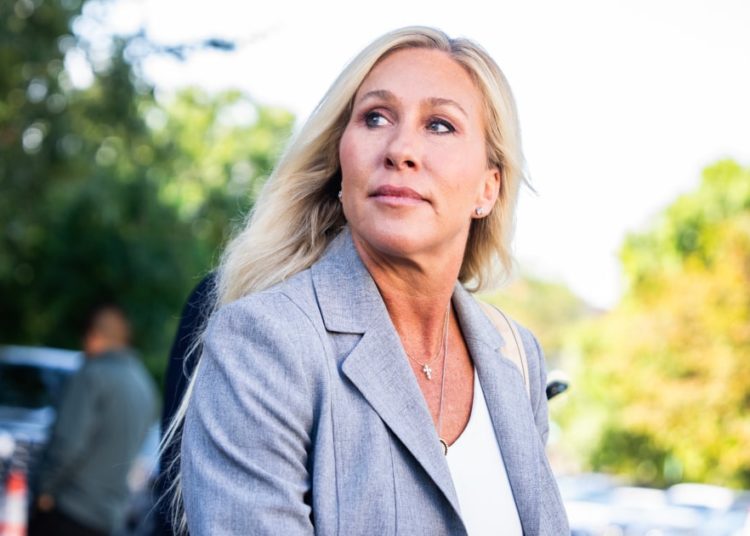Nvidia’s chief executive, Jensen Huang, said Friday that he was in talks with Chinese officials to ease their concerns about security risks associated with one of the company’s artificial intelligence chips.
The Silicon Valley chip giant was recently granted permission by the U.S. government to sell its H20 semiconductors to China, a move opposed by national security hawks as Washington and Beijing compete for technological and military primacy.
It also drew pushback from China. In July, China’s internet regulator, the Cyberspace Administration of China, said it had summoned Nvidia to explain “backdoor” functions that would allow the chips to be tracked or remotely shut down remotely. The regulator cited information “revealed by U.S. artificial intelligence experts.”
Mr. Huang spoke to reporters in Taipei, where he said he was visiting executives at Taiwan Semiconductor Manufacturing Corporation, or TSMC. He said he had made “very clear” to Chinese officials that Nvidia’s A.I. chips have no security back doors.
“There are no such things,” he said. “There never has been. And so hopefully, the response that we’ve given to the Chinese government will be sufficient. We are in discussions with them.”
Mr. Huang added that he was “surprised” by the questions, given Beijing’s eagerness to acquire the chips needed for advanced A.I systems.
“As you know they requested and urged us to secure licenses for the H20 for some time, and I worked quite hard to help them secure the licenses,” he said. “Hopefully this will be resolved.”
Mr. Huang successfully lobbied President Trump to reverse export controls on advanced computing chips going to China. This month, Mr. Trump granted export licenses to Nvidia and another U.S. chipmaker, Advanced Micro Devices, in a highly unusual arrangement where the two companies would pay the U.S. government 15 percent of the money generated from sales of A.I. chips to China.
Nvidia is set to release its latest quarterly earnings next week, which traders expect to be a major market-moving event. Nvidia, which dominates the market for A.I. chips, last month became the first public company to reach $4 trillion in market value.
Xinyun Wu contributed to this report.
Lily Kuo is a China correspondent for The Times, reporting from Taipei.
The post Nvidia Chief in Talks With China to Allay Security Fears Over A.I. Chips appeared first on New York Times.




